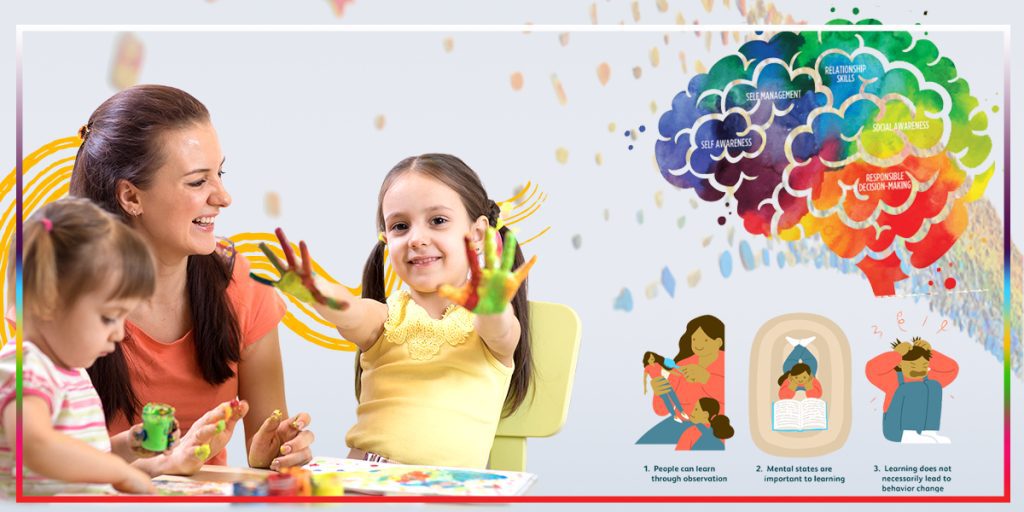Classrooms are more than just textbooks and blackboards. Although they are the basics of learning, students also learn by interacting with each other. that’s why the social learning theory has become popular in schools. It refers to a psychological concept that suggests that much of what we learn comes from observing environmental signs and the behaviors of others.
In an educational context, teachers can utilize the theory to create meaningful learning experiences for students who acknowledge their peers as invaluable sources of knowledge and information. We will discuss ways to incorporate social learning into the classroom effectively.
Social Learning in the Classroom
In the undersection, we have mentioned effective social learning in the classroom.
Attention and the Flipped Classroom
Social learning allows us to learn new skills and knowledge by seeing how others do things. It starts with paying attention, but it can be difficult for learners in a traditional classroom setting where the agenda is set from above.
As such, flipped classrooms have become popular solutions letting students take charge of their learning journey. Through online modules and discussion-focused sessions facilitated by educators or trainers armed with information about each learner’s level of understanding before beginning class activities.
Peer teaching and Peer Coaching
Peer teaching and coaching can help kids learn in the classroom. People of the same age can explain things to each other and work together to understand the latest ideas. It enables the student to feel more comfortable in their learning environment and can ease stress. Peer coaches can help students learn new strategies and practice using them. They can also provide feedback on how well a student is doing in certain areas, allowing for future improvement.
Additionally, peer coaching can allow kids to build relationships with each other. This can lead to better communication and collaboration. Learning with peers benefits students, builds their confidence, and encourages them to take risks in their learning. Peer teaching and coaching are superb ways for kids to learn as they develop essential social, emotional, and academic skills.
- Social learning is a powerful and essential way to provide students with the skills they need to succeed. It helps foster the development of student’s communication skills.
- Academically, it encourages creativity and higher-order thinking as students learn from each other in an informal setting or when discussing topics or projects.
- On an emotional level, it helps to build self-confidence and develop a sense of identity through discussions and participation in school activities. In short, It can give students the tools for academic success and emotional self-discovery.
Incorporate Social Learning into Their Lesson Plans
Incorporating social learning into teaching practices is also a good idea. It helps in establishing an engaging and effective learning environment in the classroom. Additionally, it encourages student cooperation, enabling them to benefit from one another’s viewpoints and experiences. Teachers can do this by designing exercises that call for collaboration among students to accomplish a task or objective.
Group Discussions
Group discussions are also practical for teachers to engage their class in social learning as they allow for different opinions and interpretations of a subject matter. In this regard, it is equally important that teachers guide how to agree to disagree among peers during the conversation respectfully.
Online Tools
Teachers can use many online tools and platforms to facilitate social learning in today’s digital world, such as blog posts, online quizzes, and group chat sessions. Ultimately, continuing to develop engaging ways of incorporating social learning into the classroom will enrich the educational experience of the future generation with valuable critical thinking skills.
Activities that Promote Social Learning
Classroom activities promoting social learning can be a fantastic way to keep your students engaged while teaching important concepts. A notable example is a class working together in groups to identify an issue or problem and then collaborating to produce solutions. This activity not only teaches valuable critical thinking skills but also forces students to work together as a team and learn how to communicate effectively with one another.

Other activities that promote social learning in the classroom setting include debates, discussions, interviews, or other activities where students share their thoughts or ideas. No matter what type of activity you choose, ensure that it encourages students to participate actively and learn from one another. It will help create an inclusive environment and foster a sense of learning within your classroom.
Reinforcement and Motivation Through Simulation
Reinforcement and Motivation through Simulation and Gamification in the classroom is an increasingly popular method for engaging students and creating an enjoyable learning environment. Simulations and games can help students practice their skills in a safe, controlled environment while providing feedback and motivation. Teachers can give positive reinforcement and motivation to their students.
Gamification can also be used to reward and challenge students to complete tasks and provide incentives for them to work harder. This learning environment encourages collaboration, creativity, and problem-solving, further developing students’ cognitive abilities.
Final Words
Teachers can increase student engagement through social learning in classrooms. When students feel a sense of connection with one another, they are more likely to participate in social activities. It also encourages them to work on group projects. Incorporating social learning in classrooms can help students in their future as well. We have discussed such key points in detail in the information shared above.
Frequently Asked Questions (FAQs):
Can arranging fun events help in social learning?
Absolutely. Arranging different fun events is a good way to promote social learning in classrooms.
Can assigning group projects help in social learning?
Indeed. Group projects give students a good chance to interact and work with each other.
Is it a good idea to involve parents in social activities at school?
Yes. Involving parents in classroom social activities is a good idea.





